Okay, here’s the story on food. (“*” is this Economist story; “^” is this story in Santa Clara Magazine)
Food production is not a problem, because for the last 20 years we’ve produced more calories at a greater rate than we’ve produced more people.^ But still 1 in 6 people in the world is hungry.* Because they don’t have enough money to buy food.^ So the 2008 food crisis is good, because higher food prices = more money for poor farmers. Except that it didn’t, and isn’t.* And calories turns out not to be a good measure of human food energy or nutrition anymore, because the raw food calories increasingly go to animals and to fuel,* and in the US continue to be wasted en masse or converted into unhealthy, non-nutritious calories.^
You would think that we’d have collective agreement about the future of food, being that we do need it to live and all. But I haven’t found much agreement or straight story or people even doing the math. I see the population projection of “9 billion people by 2050” everywhere, for example, but never accompanied by any explanation or even theory about how those people are going to be fed. With the loaves and fishes of superscience, I guess.
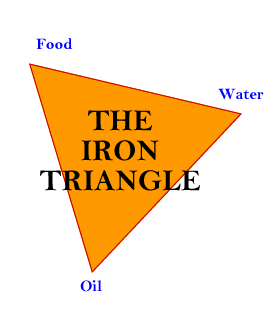
The supply of each is interlinked with the others
The problem with the Santa Clara Magazine story, and with a lot of what I read about food, is that it talks just about food. It fails to take into account what I call the Iron Triangle, the fact that food, water and oil are today locked in an ironclad fate with each other, and it makes no sense to talk about one without at least mentioning the others. Food supply, after all, was one of the most pressing concerns raised by the World Without Oil game.
The alarming thing, of course, is that all three are said to be heading toward crisis independent of the others. For food, the crisis is arable land: the Economist reports that the thing that lifted the world out of the 2008 food crisis was Europe’s decision to rush its fallow-land reserve back under the plow. Water faces a multitude of crises, the top two may be climate change (megadroughts) and pollution. And the oil crisis, as talked about all along in this blog, is its inevitable stricture combined with the lack of alternatives and the lack of time or will to create an oil-independent economy.
Taken as a triangle, the weakness of each feeds the crisis of the others. The 2008 food crisis is creeping back in 2009, the Economist reports, due largely to the upcreep in oil prices and droughts caused by climate change. Water in turn is a huge energy consumer, and obviously essential to any food production. And as the price of oil creeps up, it sparks more food-to-fuel conversion and processes such as oil sands development, which is water-intensive and climate-changing.
The bottom line for food is that today, people are hungry – even in America, which produces so much food that as much as 40% of it goes to waste. If the system couldn’t take care of its hungry in the fat years, what will it do now that we’ve entered the lean years?





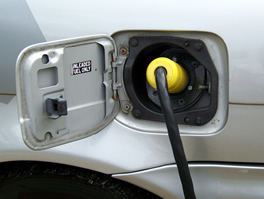

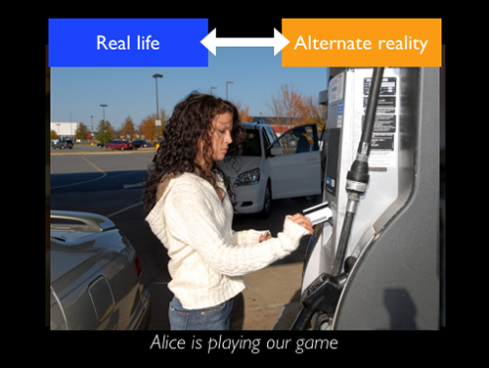


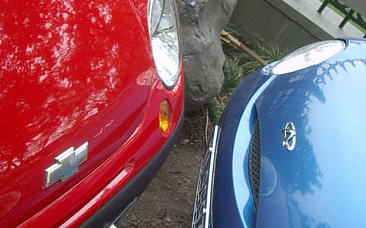






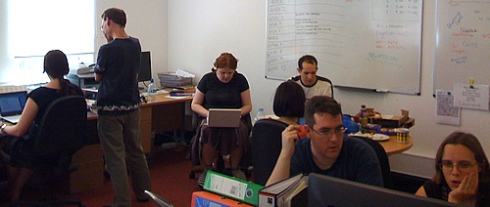












Who’s saying what